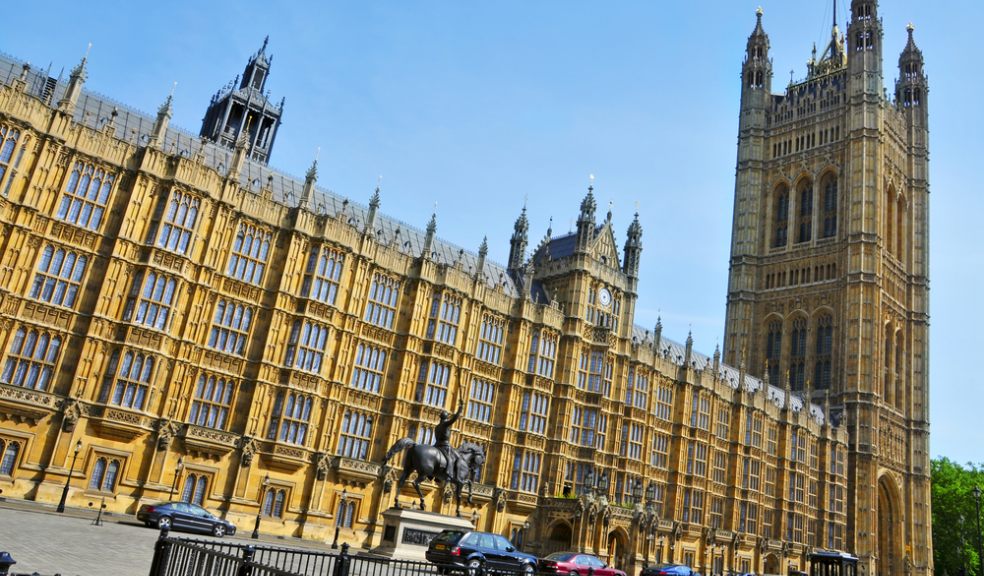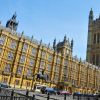
Exeter MP Ben Bradshaw talks about his life in politics
Exeter College student Adam Kelly talks to Ben Bradshaw about his life in Parliament and his 15 years as Exeter's MP.
Q: When you first entered Parliament, in 1997, what was the first thing you tried to achieve?
BB: Well I had a private member’s bill in that first year, which was very lucky. I came quite high up in the ballot. And I managed to get my private member’s bill onto the statue book, which was quite unusual if you know anything about private member’s bills. It was not a hugely significant piece of legislation, but it was about giving the public more information about what are in pesticides and the details of the chemical make up of various pesticides. Apart from that I was busy, kind of, establishing myself in Exeter, and trying to serve my constituents and get myself round the city and get myself known. Take up their concerns and issues and move towards some of the things we achieved in the years following.
Q: What do you think is the most important issue facing Devon and the southwest at the moment?
BB: The economy is the number one issue facing everywhere, including Devon and the South West. The fact that our economy in effect hasn’t grown for the last two years, that we’ve had a double dip recession, that people are really feeling the squeeze with rising food and fuel prices, and stagnant or falling real wages. I think young people are facing particular challenges because of the introduction of tuition fees and the abolition of support through measures such as, the EMA. So I think Devon and the southwest are facing similar economic challenges to many other parts of the country.
Q: Unemployment is still around 2% in Exeter. What measure would you like to see in the next budget to help fight this?
BB: Well we need, desperately need, a plan for growth. That’s what seems to be completely absent from this government’s policies and I think that there are a number of things you can do to encourage growth. Firstly I think the government should be investing far more in infrastructure investment, improving and upgrading the UK’s infrastructure because of the economic situation at the moment. Long term interest rates are at record lows, so it actually makes sense for the government to borrow and invest on a long-term basis. And almost inconceivable that it won’t more than recoup that money, so I think the single most sensible thing for the government to embark on is a major investment programme. Including, particularly important for our part of the world, in housing and affordable housing to rent because affordability of housing is probably one of the biggest challenges to face us here in the South West.
Q: GDP growth is up an unexpected 1%, inflation is quite low and the deficit is down by a quarter since 2010. Do you still advocate more spending for the current state of the economy?
BB: Well, inflation is above the Bank of England’s recommended target rate.
Q: But it’s still relatively low inflation.
BB: It’s higher than when Labour was in power, where it stayed below the Bank of England’s target rate of 2% for nearly all of the Labour government’s term. The deficit is actually increasing again this year, it’s bigger this year than it was last year, and the government’s deficit reduction strategy is completely off course already. Something they’re likely to have to admit when we have the pre-budget statement in December. And that is because they killed off growth with their austerity budget. It’s one of the first things the government did when they came in was cut too far too fast. The economy was growing quite healthily when Labour left office and unemployment was coming down. And this government has done the exact opposite of what Barack Obama did in America very successfully, where he maintained the stimulus for longer and we’ve seen the American economy grow and unemployment in America come down. So, you know, I think we are in serious trouble with our economic policy and we’ve wasted two years. And I think, what the country’s crying out for is a strategy for growth.
Q: What do you think is the most important thing that we need, in the South West in particular, to stimulate the economy? Infrastructure investment?
I think in the South West in particular we need a massive house building programme, particularly of affordable homes, for local people to rent. We already have the biggest gap, of any region, in the country between what people earn and house prices. Makes it really difficult for people to get their feet on the property ladder. You’re seeing young people, who are in work, having to stay with their parents until well into their thirties now, because they can’t afford to buy or they can’t afford very high rents in the private rented sector. And a big house building investment would not only help to address our housing crisis, but it would also help to get our construction industry moving again, which is going through a very difficult time at the moment.
Q: As the former secretary of state for culture, media and sport you oversaw the build up and work towards the Olympics? What do you now hope will be the legacy of the London Games?
Well I think there’s an automatic legacy, in that I think everyone has felt inspired by it, young people in particular. I was talking to teachers in Exeter at an event last night, who said they’d really felt they were already feeling it in their students, that people were getting more enthusiastic and more inspired to do sport. But I’m worried that part of that legacy may be lost because of the very big cuts to the school sports programme. And to the targets that, the Labour government had, to increase the amount of sport done in school. I think on the one hand, the Olympics have inspired people and on the other hand inspiration is not enough. You do need policies and infrastructure and support in schools and also outside schools. So that people can participate in sport and can discover the talents they may well have.
Q: So do you think we should keep current levels of funding for sport?
BB: Well they’ve already been cut significantly. You may not be aware, but one of the first things Michael Gove did when he came in, was abolish something called the School Sports Partnership. Which was a 160 million pound programme across the country. Sounds a lot of money, its actually not a lot of money in the overall scheme of things, which encouraged schools to work together, primary schools as well, to really boost sport and the amount of sport available for young people to participate in. When that was cut it was widely criticised at the time. Now the government has said, that it’s going to publish a new school’s sport strategy, but we’re still waiting for that. I’m not very optimistic that our current education secretary Michael Gove is particularly interested in sport.
Q: What’s your opinion on the new police and crime commissioners, with the elections having taken place yesterday?
BB: I think the elections have been a complete farce. We saw a turnout in Exeter, which is traditionally a city where we have high turnouts in elections, of just 15%. That is the lowest turnout ever recorded in a national election in British history. And the message I was getting from voters I’d been talking to in Exeter, was firstly they didn’t want these elections in the first place, they didn’t want an elected police and crime commissioner. Secondly they didn’t feel they were provided with any information about the candidates, so they didn’t know who to vote for, they didn’t know what the candidates stood for. And then thirdly, the elections have been held in November, which is one of the worst possible times to hold an election. It gets dark at four o’clock, and it’s cold and wet in many cases, and so, people had no incentive to vote. It’s been a complete farce and I think the government needs to go back to the drawing board on it.
Q: Would you get rid of them?
BB: I think we’ll have to wait and see what happens over the next two and a half years. I wouldn’t want to commit a future Labour government, at this stage in the parliament, to its post-election policy. But its pretty clear to me they haven’t got off to a very good start.
Q: Do you think the BBC is experiencing its worst crisis in history and what do you suggest should happen next at the BBC?
BB: I don’t think it’s its worst crisis in history. I think it had a more serious crisis back in 2004, when it lost both its director general and its chairman, after the Andrew Gilligan scandal. But it’s certainly a very serious crisis and I think that, public trust in the BBC has taken a bit of a beating. But I think it’s recoverable, I think the people in charge at the BBC need to get a grip and they need to sort the problems out quickly and effectively. And restore public confidence in the quality and accuracy of its journalism. I think also, there are some structural and cultural things that need to change, about the way the BBC is structured and managed. But I think that’s something Lord Patten, chairman of the trust, recognises and I think we should allow him to get on, and see it through.
Q: Would you like to see reform to the House of Lords, despite plans being shelved earlier this year?
BB: Yes I would. I think it’s absolutely extraordinary that we still have one of our two legislatures based on patronage and birth. And it makes it very difficult, I remember when I was a foreign office minister, going round the world trying to preach the merits of democracy to other governments, when they could turn around and say well you don’t have a democratic upper legislature. I think reform is long overdue and I’m very disappointed that this government has failed to deliver on both, its election promise, both governing parties had a promise to reform the House of Lords, and have elections. And it was the coalition agreement. It’s just another, of a very long list, of broken promises by this government.
Q: Would you prefer to see fully elected or only partially elected?
BB: I would prefer to see fully elected, but I would also settle for 80% and above. The story of trying to achieve House of Lords reform is, and I mean a lot was achieved under the Labour government, we got rid of 90% of the hereditary peers, and introduced the independent appointments commission for the rest of the appointments. But the lesson of it is that if you try to do everything at once, sometimes you can’t do it all at once, and sometimes you have to take it step by step. We got very close under Robin Cook actually, when he was leader of the house and I was his deputy. We lost a vote to have an eighty percent elected Lords by only four votes in the Commons. I mean I wouldn’t die in a ditch between 80% and 100%, but I think change is long overdue. And I hope very much the next Labour government will manage to pick up when we left off last time.
Q: Would you get rid of the bishops? (In the House of Lords)
BB: In a 100% elected house there wouldn’t be any place for the bishops, unless they were to stand for election. So clearly, the departure of the bishops would be a consequence of having a 100% elected chamber. I think if there were an 80% elected chamber, there might be an argument for having some places reserved for people who represent the faith communities. But I would extend it beyond Church of England bishops to other Christian denominations and other faiths, who are currently underrepresented in our political life.
Q: Can you tell us about your involvement with Exeter College?
BB: Yeah. I sort of visit the college fairly regularly, and I have regular meetings with the college’s principal, Richard Atkins, and if the college has any issues, either on policy or on local issues it would like my help with, I take those up. I also have regular sessions with students. Just last week, or the week before, with a group of students from their reach academy. They grilled me for an hour and a bit across a whole range of issues. We have a fair number of Exeter college students who come and help in the Labour party in Exeter as well and help at election time.
Q: You were in Berlin when the wall fell in 1989, do you think it is the most important event in your lifetime and what was it like to be there when the wall came down?
BB: I think it probably was the most important event in my lifetime, so far. I mean, it was incredible because it marked, although the cold war was already finishing by then, the fall of the Berlin wall was the great symbol of the end of the post second world war order of a divided Europe. And the hegemony of communism under the Russian sphere of influence. And also it was something that at the time, and in the period leading up to it, I don’t think anybody really expected. I remember when I went to Berlin at the beginning of 1989, thinking that something might happen, but I don’t think anyone, well I know no one thought the Berlin wall would come down in our lifetimes. It almost seemed to be something which was a given. A historical permanency. But it almost shows you, doesn’t it, how things can change. And for me personally as someone who had studied and spoke German, it was also significant in that it led to the re-unification of Germany and the reshaping of Europe. And that, the re-unification of Europe of you like, into a sort of greater Europe of, within the EU, democracies and that was a very good thing, a very exciting thing.
Q: You’re generally considered to be in the Blairite faction of the Labour party. Do you think Ed Miliband is taking the opposition in the right direction to win power in 2015?
BB: Yeah I do. I mean it’s strange that people use these labels. I mean I’ve always ever considered myself Labour. I think I’ve won a seat in Exeter, which was always traditionally Conservative, and I think if you mean by Blairite, the fact that parties win elections from the centre, yes I think that is the case. But I think it’s also possible for parties and good leaders to shift that political centre. I think Tony Blair himself managed to do that. And I think Ed Miliband is showing very promising signs of being able to do that. In that he is very attuned to a lot of the kind of deep concerns people have about the functioning of modern capitalism, if you want to put it like that. In terms of how it spreads, doesn’t spread prosperity fairly. How it operates in terms of transparency. I think on all of these issues he’s shown himself to be ahead of the curve, which is a very good thing. I think he’s done a good job in the last two and a half years, and I think perhaps his biggest achievement is to, have maintained very strong unity in the Labour party. Because if you look historically at what’s tended to happen when Labour governments have lost power is they’ve kind of descended into civil war. If not civil war, then kind of division and factionalism. And that hasn’t happened. I think the Labour party, speaking personally, feels more united than ever, it has ever felt. Doesn’t mean the next election is in the bag, there’s still a lot of work to be done. And he’s a very bright guy, he’s got some very good people around him and I’m confident he can deliver.
Q: Do you think that an Ikea store in Exeter, would cause city centre shops to lose out?
BB: I don’t think it would. Exeter has a very strong city centre, one of the strongest in the country. We have the lowest level of shop vacancies anywhere in the country. John Lewis has just opened here, we’ve had a Waitrose open just before that. The new Princesshay, or relatively new Princesshay development, so Exeter city centre’s doing OK considering the economic backdrop. And to be perfectly honest you’re not going to get an Ikea in a city centre anyway, because of the size and the space that Ikeas need. What would worry me though, is if Ikea coming to Exeter heralded a new kind of wave of out of town shopping development, at the cost of the city centre. I’m very worried about some of the planning changes this government’s putting through, where under the Labour government there was an assumption that new retail development should take place in city centres first. And only if there wasn’t space, then they could go on the edge of towns. The current government is changing that again and that does worry me. Because I don’t want to see the sort of free for all we saw in the 1980’s, which really did hit city centres and did lead to this sort of urban sprawl, American type retail parks.
Q: Do you think Nadine Dorries was right to go on ‘I’m a Celebrity Get Me Out of Here’?
BB: No I don’t. Although I suspect quite a lot of people in the Tory party are quite relieved at the fact that she’s gone to the jungle. She’s probably more trouble at home than she is in the jungle. No, I mean look, the job of a Member of Parliament is to represent their constituencies, and work on behalf of their constituents in parliament. I’m not quite sure what Nadine Dorries’ constituents can do right now. I’ve got my surgery in a couple of minutes and I’ll be dealing with people in Exeter who’ve got really serious problems they need to sort out, so I’m not quite sure how her constituents are being served in her absence. You also, I think, as an MP have an obligation to be in parliament to support your party and to scrutinise government legislation, and she’s clearly not around to do that. I don’t think it was a very wise move, but it’s probably in character with her, from what I know of her.
Q: So you don’t buy the ‘bringing politics to the people’ like she says?
BB: I think there are other ways of doing that. Other politicians manage to develop and build good relationships with their constituents and with the public, without resorting to publicity stunts of that type. And I think in the end they’ll probably get more respect for it, than Nadine Dorries will.
Q: What is your proudest achievement as MP for Exeter, whether it is a constituency case, issue, vote or anything else?
BB: I think the most significant thing and the most long-term thing we achieved for Exeter, was the investment in our high schools, every single one of the new five high schools in Exeter, which we re-built under the Labour government. We got some fantastic new buildings replacing some pretty poor, 1960s mainly, buildings and we’ve seen a big improvement in attainment. Partly as a result, not just down to new buildings, but I do really think that when young people are educated in nice surroundings and they feel valued, it helps them with their motivation. And it certainly, I think, helped, along with some good, new leadership in the schools, turn around Exeter’s education which was not very good when I was elected, and is now good and still improving. And I think that’s the most important thing one could ever achieve, to improve the life chances of the young people you represent.


















